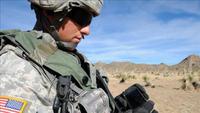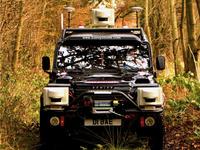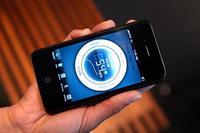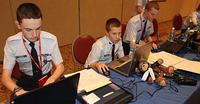-
Securing smartphones in battle

As the military moves to incorporate smartphones on the battlefield, critics worry that the inherent security flaws in the devices could result in major data breaches or cybersecurity attacks on the military’s networks
-
-
Engineering lessons of Fukushima
Many engineers and scientists are still examining what happened at Fukushima during the earthqyake and tsunami of 11 March; one group, a Tsunami Loads-and-Effects Subcommittee sponsored by the American Society of Civil Engineers (ASCE), is preparing to publish early next year an approximately 350-page report
-
-
Rising political, economic tensions over critical minerals

The clean energy economy of the future hinges on many things, chief among them the availability of the scores of rare Earth minerals and other elements used to make everything from photovoltaic panels and cellphone displays to the permanent magnets in cutting edge new wind generators; trouble is, China currently controls about 97 percent of the mining and production of the minerals, and it is using that control to give Chinese companies an advantage and for political pressure on other countries
-
-
Global Security Challenge grand final 24-25 October
Global Security Challenge grand final will be held in London 24-25 October; six start-ups and six SMEs will compete for a prize fund of $500,000
-
-
Tweeting may help in disasters
Social networks like Twitter cannot help prevent disasters, but can quickly correct misinformation resulting from false rumors, thus preventing possible further loss of lives
-
-
Robotic car allows drivers to work while driving

The overall cost of road congestion in the United Kingdom to business is likely to rise to £23-24 billion a year within the next fifteen years; increasing public transport capacity may help, but experts believe that, with people unwilling to give up cars, the solution is autonomous vehicles: they make road journeys safer, more efficient, and allow people to do work while on their way to the office
-
-
Mobile consumer devices transmit vital signs

Researchers turn a smart phone into a medical monitor; an app for smart phones, and eventually tablet devices, is turning these mobile devices into sophisticated medical monitors able to capture and transmit vital physiological data
-
-
Behavioral observation as a security method questioned

Agencies in charge of airport security believed they had a good idea: why not add behavioral observation of passengers as an added layer of security on top of the various screening and scanning machines already placed at airports around the United States; experts question the method’s efficacy
-
-
Raytheon expanding its commitment to math and science education
Raytheon Company said it is expanding its commitment to math and science education through a $1 million gift that will help extend the national impact of the Museum of Science, Boston’s Engineering is Elementary (EiE) program; in the past five years, Raytheon has committed more than $60 million to MathMovesU, STEM and education programs
-
-
Environmentalists in arms over border decision
Yesterday, House Natural Resources Committee 26-17 vote to approve H.R. 1505, the National Security and Federal Lands Protection Act; the proposed legislation would waive thirty-six environmental and other laws for U.S. Customs and Border Patrol activities on public lands within 100 miles of U.S. borders; environmentalists are angry
-
-
Food safety grant to fund research on preventing food-borne illnesses

A $1.3 million grant to develop a new food-safety training program for government and industry has been awarded by the U.S. Food and Drug Administration (FDA) to the University of California, Davis, School of Veterinary Medicine
-
-
CSC wins $86 million task order for emergency communications
On Wednesday CSC announced that it had won an $86 million task order from DHS to continue providing emergency priority telecommunication services for the agency
-
-
Electronegativity will simplify chemistry education, allows new research
Researchers at Oregon State University have created a new, unifying method to describe a basic chemical concept called “electronegativity,” first described almost eighty years ago by OSU alumnus Linus Pauling and part of the work that led to his receiving the Nobel Prize
-
-
Registration for CyberPatriot IV competition to end this week

With less than a week left before registration closes, CyberPatriot IV, the National High School Cyber Defense Competition, has more than 850 teams registered; this competition is attracting high school educators across the United States; the structure of the competition provides students hands-on learning while competing virtually against their peers and introduces many to the idea of cyber security as a profession
-
-
Teaching sensors to think for themselves
There is a major problem with sensors: data overload; as sensors gather more and more information, it has become increasingly difficult for human users to separate out what is relevant from what is not; two U Vermont researchers received a grant from DARPA to teach sensors what to look for — and what not to look for
-
More headlines
The long view
New Technology is Keeping the Skies Safe
DHS S&T Baggage, Cargo, and People Screening (BCP) Program develops state-of-the-art screening solutions to help secure airspace, communities, and borders
Factories First: Winning the Drone War Before It Starts
Wars are won by factories before they are won on the battlefield,Martin C. Feldmann writes, noting that the United States lacks the manufacturing depth for the coming drone age. Rectifying this situation “will take far more than procurement tweaks,” Feldmann writes. “It demands a national-level, wartime-scale industrial mobilization.”
How Artificial General Intelligence Could Affect the Rise and Fall of Nations
Visions for potential AGI futures: A new report from RAND aims to stimulate thinking among policymakers about possible impacts of the development of artificial general intelligence (AGI) on geopolitics and the world order.
Smaller Nuclear Reactors Spark Renewed Interest in a Once-Shunned Energy Source
In the past two years, half the states have taken action to promote nuclear power, from creating nuclear task forces to integrating nuclear into long-term energy plans.
Keeping the Lights on with Nuclear Waste: Radiochemistry Transforms Nuclear Waste into Strategic Materials
How UNLV radiochemistry is pioneering the future of energy in the Southwest by salvaging strategic materials from nuclear dumps –and making it safe.
Model Predicts Long-Term Effects of Nuclear Waste on Underground Disposal Systems
The simulations matched results from an underground lab experiment in Switzerland, suggesting modeling could be used to validate the safety of nuclear disposal sites.
